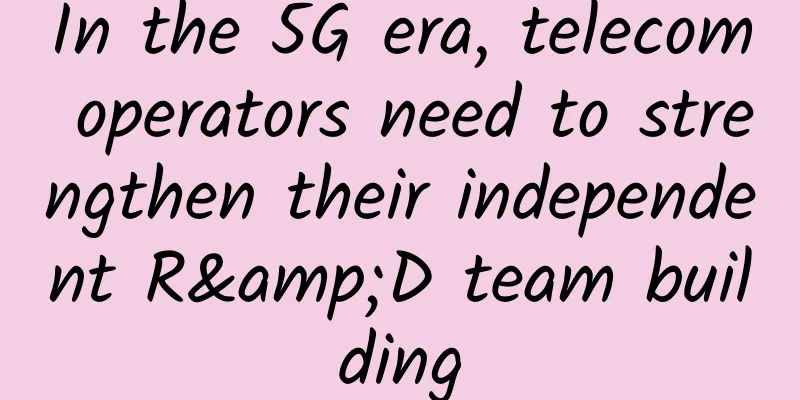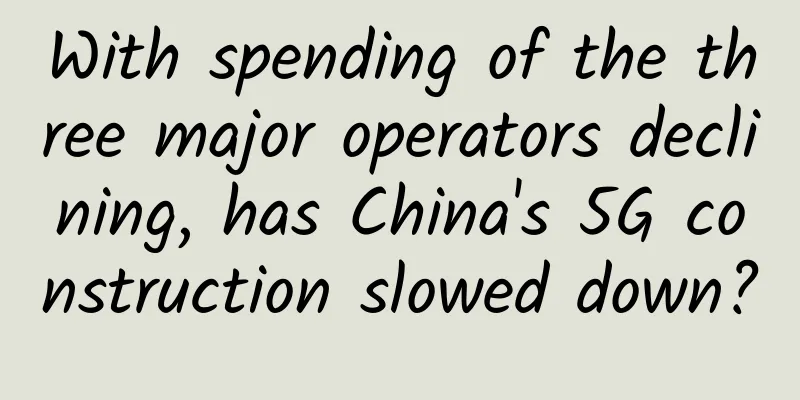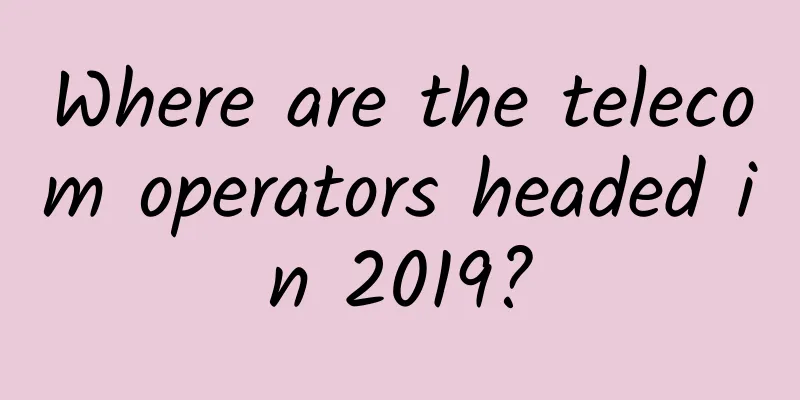How did the three major operators become involuted? Is it necessary for the three to merge to avoid involuntariness?

|
It is child's play for operator staff to enter a residential area, tear down a competitor's promotional posters, or post their own advertisements on those of their competitors. The advanced ones are to establish good relations with developers and property management companies, monopolize broadband in residential areas and communities, and block other operators from entering the market. Of course, this approach will definitely undermine the user's right to choose. Even more ruthless is "disconnecting the network line". In some places, it is not uncommon for communication facilities such as optical distribution boxes and network lines in residential areas to be damaged by "friendly companies" in the communication industry. What's even funnier is that at the freshman orientation and homecoming promotion events at universities, stories of employees from the three major operators slandering and swearing at each other, and even outright "all-out fights" are not uncommon in the industry. This kind of involutionary development model and market environment of "open competition and secret grabbing" is probably difficult to imagine and encounter in other industries. In recent years, the communications industry has made great progress in network scale, user development, and innovative business layout, especially in network construction and user development, both of which are at the forefront of the world. At the same time, competition in the communications industry is becoming increasingly fierce, with outstanding performance in personal users, government and enterprise services, and even innovative businesses. In particular, with the user ceiling being reached, the growth of network investment scale and operating costs, and the capital market's requirements for financial performance, the competition among the three major operators has become fierce, the industry has been seriously involuted, and the industry value has been reduced. This vicious competition has also continued to extend to the 5G industry market and innovative business expansion that is just starting. The internal competition in the industry has led to a serious underestimation of the value of operators in the capital market, and the front-line employees of operators are suffering. At the same time, low-level competition has also spread to the equipment vendor market, where price-based centralized procurement and vicious competition have harmed the overall ecology of the communications industry chain and supply chain. How is the communications industry "involuted"?It is understood that by the third quarter of this year, the total number of mobile phone users of the three major operators, China Mobile, China Telecom and China Unicom, has reached 1.64 billion, while the domestic population is 1.412 billion. Therefore, the industry ceiling of user scale has actually reached its peak. Some industry experts also said that if the environment does not change significantly, 1.6 billion may be the peak of my country's mobile phone users. Therefore, the communications market is destined to be a "game" dominated by stock competition. However, the communications industry has always been the industry with the most obvious user scale effect. At present, the market structure of the three major operators has been solidified. China Mobile is the only one that occupies 60-70% of the mobile communications market share; the fixed-line broadband market share also occupies nearly half of the market and is still rising. In such an environment, if China Telecom and China Unicom want to survive and develop, they will naturally focus on the user scale of their competitors. If China Mobile wants to consolidate its existing market position, it will naturally have to deal with the "poaching" tactics of China Telecom and China Unicom. In recent years, the competition among the three major operators has been extremely fierce and intense. Various marketing activities and marketing methods have emerged one after another. But they are actually aimed at friendly competitors. Those "fancy" marketing activities, such as street canvassing, building canvassing, and marketing in rural areas, various stall marketing on weekends and holidays, as well as university welcome and homecoming promotions, as well as price war marketing tactics such as "unlimited", "free use", and "data king card", have not only dazzled users, but also exhausted the employees of the three major operators themselves, and have also caused the industry value of the operators to plummet. This series of operations ultimately led to a continuous decline in the marginal benefits of the industry, while it became difficult to increase business volume and revenue. Overall, the revenue of the operator industry has reached a ceiling, while the actual profits of enterprises are declining. Duplicate construction, waste of state-owned assets, vicious competition, and mutual poaching. In this zero-sum game around the stock market, there is actually no real winner among the three major operators. Is it necessary for all three operators to merge?I feel that the internal friction among operators is too serious now. There are three base stations on one tower, and three broadband optical fibers are pre-buried at the door of a household. They set up stalls every few days to grab customers. Broadband mobile phones are necessities, just like water and electricity, which do not need marketing. Has anyone seen a water company come out to market to grab the bottled water business? For example, the power bureau is the only one in the market. Even if the electricity price has not increased for decades, the employees still have full benefits. Do state-owned enterprises need competition after monopoly? If they think it is too expensive, the state can immediately reduce the price with a document. Anyway, the profit is the state's, and the loss is also the state's. It is impossible to merge all of them. This is a consideration of the national communication strategy. There must be at least two main and backup networks. The price is unlikely to change much. Even the pricing strategy currently implemented has a certain government guidance nature. If some mergers can reduce vicious competition, at best there may be some room for returning to normal market pricing. A substantial price increase is impossible. What roles are involved in the merger?1. Operator executives: Impossible. If the merger is successful, my position will be gone. Unless I am sure of winning, I will not come to vote. 2. Operator employees: There will inevitably be a reduction in jobs after the merger. Although state-owned enterprises will not lay off employees, how will they be diverted? 3. Equipment supplier: You are crazy. The cake has become smaller, and your income will also be affected in the future. 4. Crowd: Are you sure that after the merger, your rates will not increase and the quality of service will not decrease? |
>>: 2021 China Internet Haha List 2: Top Ten Events
Recommend
Sharktech: 10Gbps unlimited traffic server starting from $259/month, dual E5-2678v3/64G memory/1T NVMe disk/5IPv4/60Gbps defense
Sharktech's special promotion machine this mo...
Single Sign On (Single Sign On) is enough to read this article
[[347603]] background In the early stages of ente...
Home Broadband IPv6 Address Allocation Revealed
Part 01 Background In 2021, the Ministry of Indus...
OneDNS: Building the first line of defense for enterprises with SaaS-based DNS security services
With the increase in remote office and branch off...
How to use WireShark to capture packets and see through network requests
[[385882]] This article is reprinted from the WeC...
5G is coming. How can 2G/3G be smoothly decommissioned?
As global operators invest heavily in 5G, the top...
What other uses does a wireless router have besides WiFi access?
Wireless routers have entered thousands of househ...
V5.NET offers 20% off on all independent servers, and Korean dual E5 servers start at 455 yuan per month
V5 Server (V5.NET) mainly provides independent se...
How to jointly build and share 5G networks?
[[379482]] This article is reprinted from the WeC...
What are the differences between HTTP and HTTPS besides security?
HTTP and HTTPS are two common network protocols, ...
Interview surprise: Why use HTTPS? What is it useful for?
Speaking of HTTPS, I believe most people are fami...
In-depth analysis of common three-way handshake exceptions
[[416112]] This article is reprinted from the WeC...
6G is coming, how will the business change?
The next generation (6G) transmission technology ...
ProfitServer: 40% off on Russian dedicated servers, starting at $28.29 per month for unlimited traffic
The first time to share information about ProfitS...









